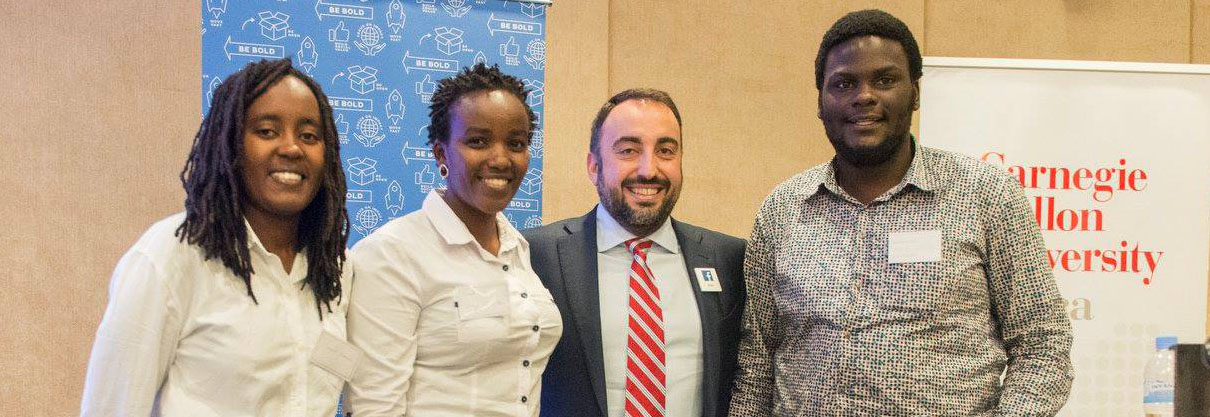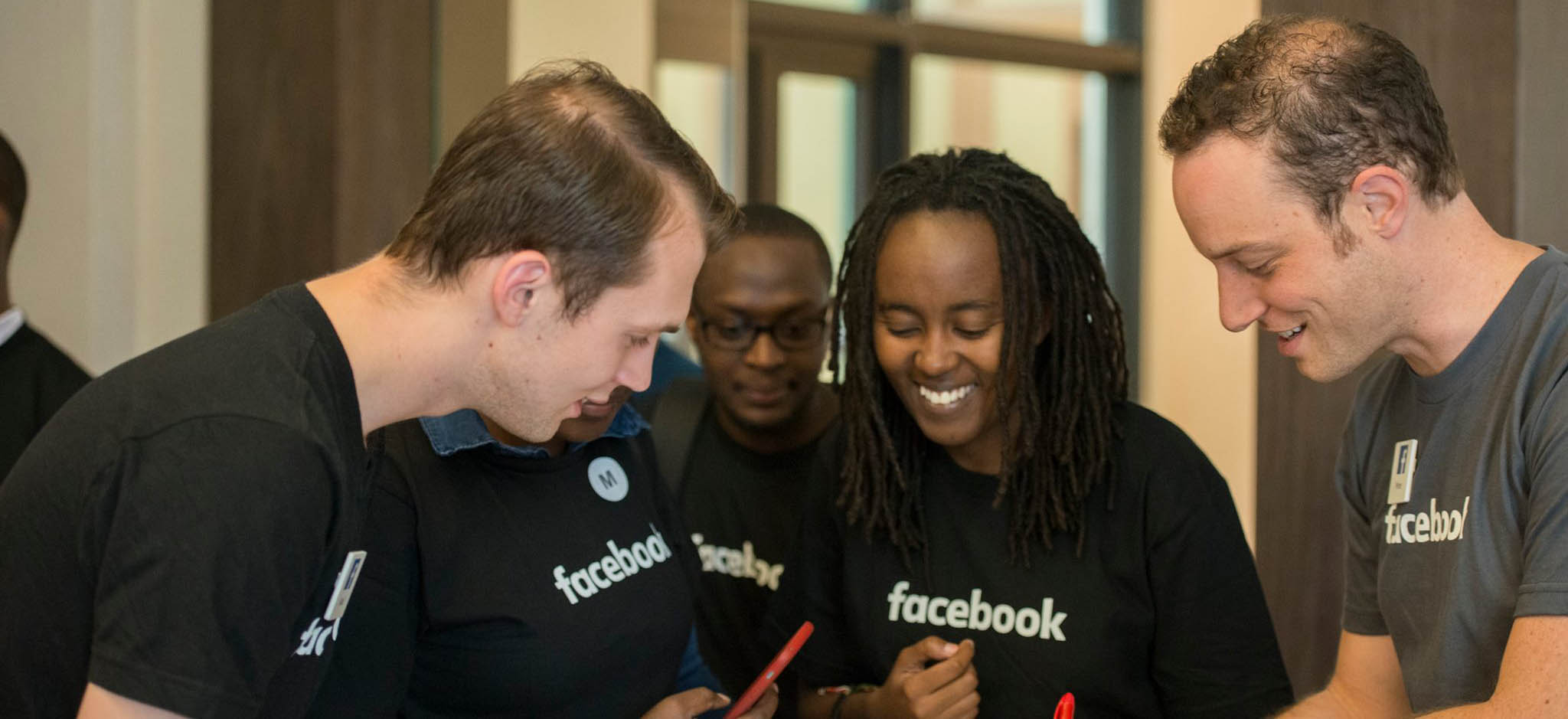Facebook and Carnegie Mellon University Africa cybersecurity hackathon
Staff writer
Apr 9, 2018

Source: Carnegie Mellon University Africa
The winning team, Yvonne Wambui Gitau, Rahab Wairimu Wangari, and Emmanuel Biketi Chebukati with Facebook Chief Security Officer Alex Stamos. The team developed a platform that detects fraud in mobile money using machine learning.
This week, Facebook and Carnegie Mellon University Africa hosted a 24-hour cybersecurity hackathon from April 4th to April 5th at the Kigali Marriott Hotel. The goal of the hackathon was to engage and inspire students to become more involved in the cybersecurity field by challenging them to solve a cybersecurity challenge. Hackathons are a cherished Facebook tradition wherein engineers, product designers, and their colleagues collaborate to develop an innovative project to address a specific problem within an allocated timeframe.
"Hackathons both spark student interest -- in this case, in security and privacy -- and encourage creativity," said Lujo Bauer, a cybersecurity expert from Carnegie Mellon who will be participating in the event. "Both of these are crucial as we try to develop a workforce that will be able to answer the security and privacy challenges of tomorrow. CMU-Africa and Facebook holding this event here in Kigali reflects the recognition that security and privacy threats are a global problem that can only be solved by drawing on talents and viewpoints of people across the globe. Holding the event here is also a wonderful recognition of the high quality of our CMU-Africa students. I hope this event will be an inspiration and motivation to them as they graduate and start applying their skills in the workforce."

Source: Carnegie Mellon University Africa
Facebook engineers Vlad Ionescu and Peter Huitsing with CMU-Africa students at the beginning of the hackathon.
A team of eight from Facebook are in Kigali to participate in both the Cybersecurity Hackathon and the Facebook Carnegie Mellon University Africa Cybersecurity Summit, which will include talks given by Facebook Engineers Vlad Ionescu and Peter Huitsing, Prof. Lujo Bauer of Carnegie Mellon University, and a keynote talk given by Facebook Chief Security Officer Alex Stamos.
According to Betsy Bevilacqua, Facebook’s Head of Security Programs and Operations, “the cybersecurity industry needs to be reflective of the diversity of people we aim to protect. Facebook has invested heavily in security education programs so all different kinds of people get to experience security fundamentals, hands-on.”
The vision of CMU-Africa is to educate and empower Africa’s next generation of technology leaders and innovators by delivering a world-class educational experience. Their mission is to produce creative and technically strong engineers, who have been trained in the African context, and prepared to make transformative impact in their communities and the world.
Through our partnership with Facebook, we are able to engage our students in an exciting challenge to create cybersecurity solutions for the continent and to expose them to Facebook’s top security engineers and leaders.
Andrea Ponce, Director of Development, Carnegie Mellon University
CMU-Africa was established in 2011 and is the only U.S. research university offering its master’s degrees with full-time faculty, staff and operations in Rwanda. Borne out of a partnership between CMU and the Government of Rwanda, CMU-Africa is addressing the critical shortage of high quality engineering talent required to accelerate development in Africa—home to the fastest growing workforce in the world.
According to Crystal Rugege, director of strategy and operations at CMU-Africa “The rapid adoption of technology in Africa presents unprecedented opportunities for innovation, but also introduces massive threats in the cybersecurity space. CMU-Africa’s programs are uniquely positioned to address these security issues with the contextual intelligence and cultural nuances required for such a diverse continent.”
CMU-Africa first partnered with Facebook in 2017 for a Bot-Party and Hackathon in which CMU-Africa students worked 24 hours to build Facebook Bots.“Cybersecurity is extremely important in the development of transformative technology solutions in Africa,” said Andrea Ponce, Director of Development at Carnegie Mellon University Africa. “Through our partnership with Facebook, we are able to engage our students in an exciting challenge to create cybersecurity solutions for the continent and to expose them to Facebook’s top security engineers and leaders.”
This year, 65 student participants representing Rwanda, Kenya, Uganda, Nigeria, Ghana, Ethiopia, Zambia, Tanzania, Lesotho, and Togo will be grouped into teams to tackle a cybersecurity challenge that was disclosed on the day of the event. Participants got the opportunity to interact with leading Facebook engineers and staff during their project development.
The winning team was ‘SUSSD’ comprised of second-year students Rahab Wairimu Wangari, Yvonne Wambui Gitau, and Emmanuel Biketi Chebukati, who developed a platform that detects fraud in mobile money using machine learning. The winners of the hackathon received a grand prize of an all expense-paid trip to the F8 developer conference in San Jose, California on May 1-2, 2018. Facebook’s annual developer conference showcases Facebook’s latest technology and gives participants a glimpse into what’s next for Facebook.